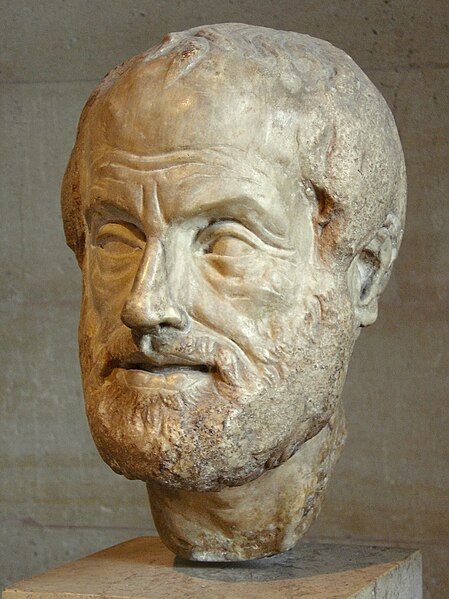Aristotelianism is a philosophical tradition inspired by the work of Aristotle, usually characterized by deductive logic and an analytic inductive method in the study of natural philosophy and metaphysics. It covers the treatment of the social sciences under a system of natural law. It answers why-questions by a scheme of four causes, including purpose or teleology, and emphasizes virtue ethics. Aristotle and his school wrote tractates on physics, biology, metaphysics, logic, ethics, aesthetics, poetry, theatre, music, rhetoric, psychology, linguistics, economics, politics, and government. Any school of thought that takes one of Aristotle's distinctive positions as its starting point can be considered "Aristotelian" in the widest sense. This means that different Aristotelian theories may not have much in common as far as their actual content is concerned besides their shared reference to Aristotle.
Aristotle by Francesco Hayez
A medieval Arabic representation of Aristotle teaching a student.
Aristotle, holding his Ethics (detail from The School of Athens)
Aristotle was an Ancient Greek philosopher and polymath. His writings cover a broad range of subjects spanning the natural sciences, philosophy, linguistics, economics, politics, psychology, and the arts. As the founder of the Peripatetic school of philosophy in the Lyceum in Athens, he began the wider Aristotelian tradition that followed, which set the groundwork for the development of modern science.
Roman copy (in marble) of a Greek bronze bust of Aristotle by Lysippos (c. 330 BC), with modern alabaster mantle
School of Aristotle in Mieza, Macedonia, Greece.
"Aristotle tutoring Alexander" by Jean Leon Gerome Ferris.
Portrait bust of Aristotle; an Imperial Roman (1st or 2nd century AD) copy of a lost bronze sculpture made by Lysippos.







